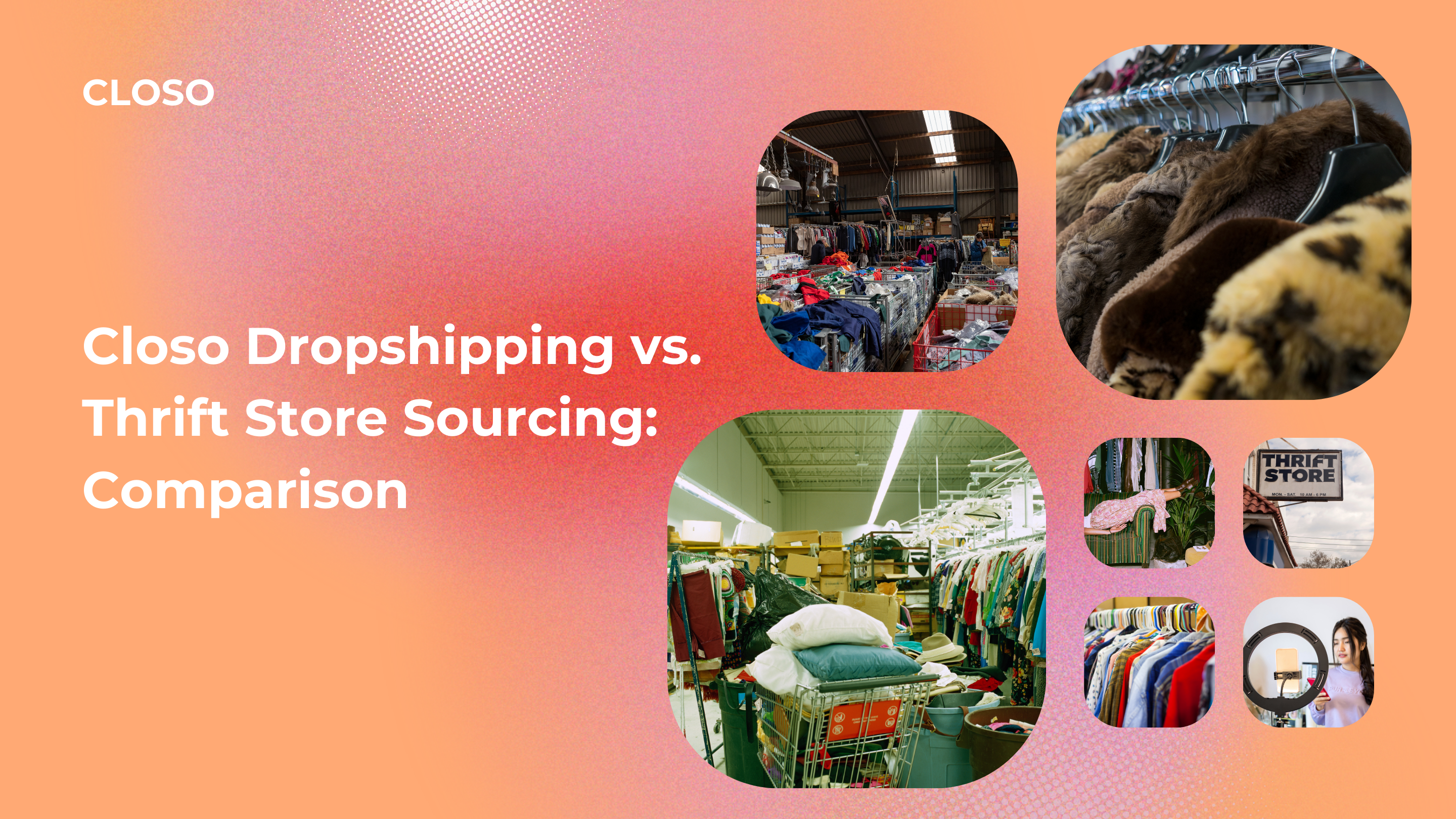Reselling can be a profitable venture, but your financial strategy plays a crucial role in maximizing your earnings. While thrift store sourcing remains a popular choice, it often involves hidden costs and limitations. On the other hand, Closo dropshipping presents a modern, cost-effective solution that simplifies operations and improves profitability. Below is a detailed comparison of the two methods from an economic perspective, complete with a financial outcome breakdown.
1. Upfront Investment
-
Closo Dropshipping: $19.99 monthly subscription fee for listing up to 150 items. There are no upfront inventory costs—only pay after a sale is made.
-
Thrift Stores: Requires upfront payment of $5 per item on average. A seller who purchases 100 items a month spends approximately $500 in inventory costs.
Economic Insight: Closo eliminates large upfront investments and keeps monthly costs predictable.
2. Sales and Revenue Potential
Let’s compare the potential revenue:
-
Closo Dropshipping: With an average selling price of $75 per item and a sell-through rate of 20% (30 items sold out of 150 listed), total revenue is $2,250.
-
Thrift Stores: With an average selling price of $30 per item and a 20% sell-through rate (20 items sold out of 100), total revenue is $600.
Economic Insight: Closo’s higher average selling price increases overall revenue significantly.
3. Cost of Goods Sold (COGS)
-
Closo Dropshipping: COGS is based only on sold items, paid after the sale. This varies but typically remains competitive.
-
Thrift Stores: With a $5 cost per item and 20 items sold, the total COGS is $100.
4. Subscription vs. Inventory Costs
-
Closo Dropshipping: $19.99 monthly subscription.
-
Thrift Stores: $500 upfront investment for 100 items.
Comparison: A seller using Closo saves $480.01 per month on upfront inventory costs.
5. Profit Breakdown
-
Closo Dropshipping:
-
Revenue: $2,250
-
Subscription fee: $19.99
-
Estimated COGS (30 items sold): $1,200 (approx. $40/item)
-
Net Profit: $1,030.01
-
-
Thrift Stores:
-
Revenue: $600
-
COGS (20 items sold): $100
-
Net Profit: $500
-
Economic Insight: Closo provides over 2x the net profit thanks to higher selling prices and lower fixed costs.
6. Time as a Cost Factor
-
Closo Dropshipping: Automated listings save time by auto-filling product details and uploading images.
-
Thrift Stores: Manually taking photos, writing descriptions, and listing each item can take hours.
Economic Insight: Time saved translates to higher productivity and the ability to manage more listings.
7. Scalability and Overhead
-
Closo Dropshipping: No need for extra storage, packing supplies, or fulfillment costs. Everything is handled by Closo.
-
Thrift Stores: Requires storage for unsold items and additional supplies for packing and shipping.
Economic Insight: Closo allows for unlimited growth without increasing operational costs.
Conclusion
From a financial perspective, Closo dropshipping outperforms thrift store sourcing in profitability, time savings, and scalability. By eliminating upfront costs and increasing revenue per sale, Closo enables resellers to achieve higher profit margins with less financial risk.
With a predictable subscription fee, automated listing process, and seamless inventory management, Closo empowers sellers to focus on growth rather than logistics. Whether you're starting out or looking to scale your reselling business, Closo provides a clear financial advantage for long-term success.




